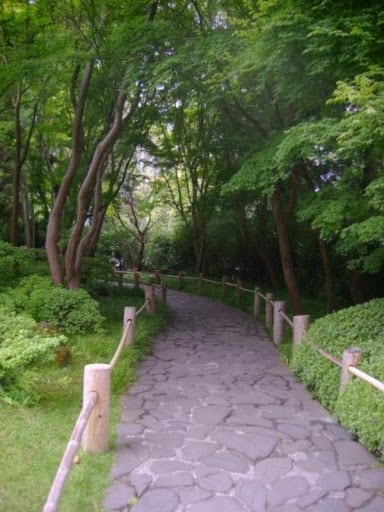Years ago when intolerable confusion about the relationship I was in led me to my first Vipassana (Insight Meditation) Retreat, I was asked one simple question which grabbed my attention then and which still impacts my life today.
For the seven days that I was there, my fellow retreatants and I were immersed in silence. No phones. No books. No TV. None of our usual mindless distractions. Instead, just an amazing expanse of nature to explore externally and an equally intriguing but sometimes more daunting landscape to explore internally.
Over that period, each retreatant was allotted two private interviews with a teacher to discuss any pressing concerns we had. In my first interview I spoke about the challenge I was having deciding whether to stay with my boyfriend and try to make the relationship work versus simply accepting the seemingly irreconciable differences between us and walk away.
In my second interview I spoke about the intense aversion I was having to being in such a prolonged state of angst and uncertainty. It was deeply painful for me to be experiencing myself in this way I explained to my teacher because ‘I don’t do stress’, “I don’t do unhappiness. I don’t do confusion and… certainly…. not over a guy”. It was then that my teacher gently asked the question I have never forgotten: ‘Has anyone ever told you that it’s okay to be a human being…. and that you don’t always have to have it together?
Apparently not.
Up to that point it seems I had never read the memo which outlined in clear detail that being a human being involved feeling intensely uncomfortable emotions at times (sadness, fear, disgust) and facing confusing internal conflicts. The same memo which stated that being a human being meant I would still end up having to experience raw vulnerability and uncertainty despite my relentless attempts to create intellectual illusions of control and certainty. And clearly I had missed the memo that warned that being human meant “falling apart” every once in a while in order to be effectively liberated from painfully restrictive beliefs about how I, other people, or life in general, “should” be.
Over time I have realised that I am not the only one who seems to have to have bypassed reading the “on being a human being’ memo. And so I see many of my friends, relatives and clients demonstrating the same aversion I initially had to my own humanity and vulnerability. Like me, they unwittingly heap unnecessary psychological suffering on top of whatever uncomfortable emotional experience they are having. Determined resistance. Exhausting mental gymnastics. Prolonged pain. And yet, as I discovered on that first silent retreat, it really doesn’t have to be that way.

It is possible to feel and survive the tumultuous emotions that we think will annihilate us. It is possible to embrace our sadness and uncertainty the same way we welcome our happiness and clarity. And it is possible to explore and move confidently throughout the full expanse of our emotional homes without trying to cordone ourselves off to what we deem to be a “safe”, albeit extremely limited, corner. Perhaps as vulnerable helpless children, who once felt we couldn’t survive the floodgate of painful unsettling emotions, we needed to do that. As grown adults however, we can actually learn more mature and effective ways of facing the inescapable chaos and complexities of being human.
One of the painful ironies of not having read that elusive “on being a human being memo” is that we missed the warning which stated that the extent to which we try to resist feeling our perceived negative emotions is the extent to which we also unwittingly shut ourselves off from fully experiencing the positive ones: contentment, satisfaction, authenticity and meaning in our lives.
Mindfulness I have discovered, is the “on being a human being memo” that I and some of you never did read in our younger days. As a guiding path and a practice, it teaches us how to simply feel the purity of our emotions without getting caught up in the anguish of the mental stories we create about them. It shows us how to be courageous in the face of our emotional storms so that we can receive the wisdom of the messages embedded within them. Mindfulness teaches us that we don’t have to expend so much effort being determinedly happy no matter what, neither do we have to deliberately keep wallowing in self inflicted misery. It also teaches us that we really don’t have to keep trying to play it safe by becoming emotionally numb.
Mindfulness requires courage. And it demands relentless honesty. Yet it also gives us priceless rewards of vital mental space and liberating emotional freedom: factors which can serve all of us well on this collective journey of being human.
